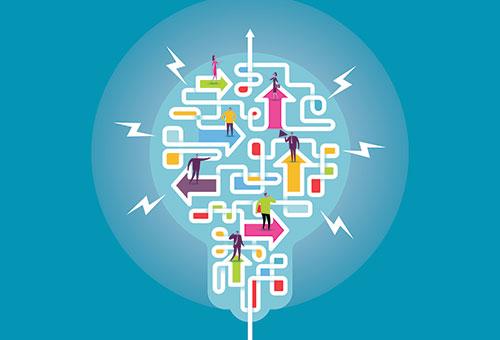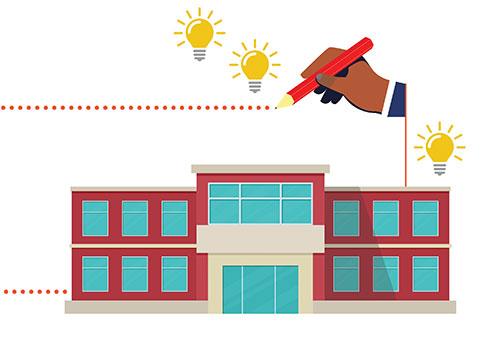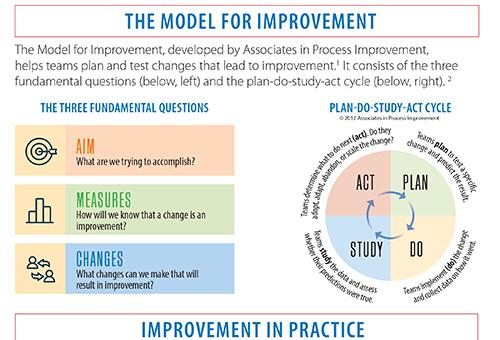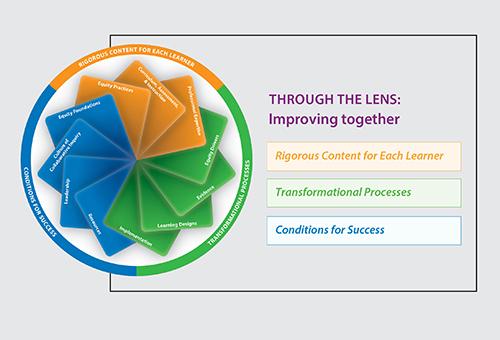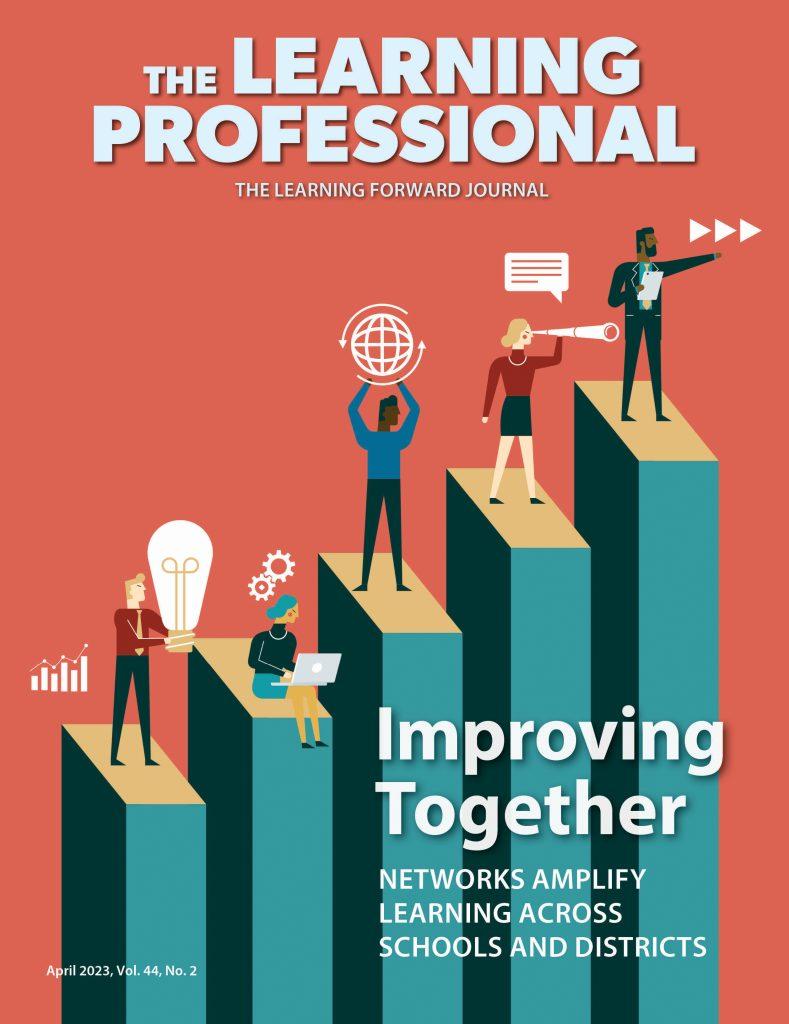
Improving Together
April 2023
Learning networks give educators collaborative opportunities to grow and improve so they can help students thrive. This issue highlights how networks are leading the way to change.
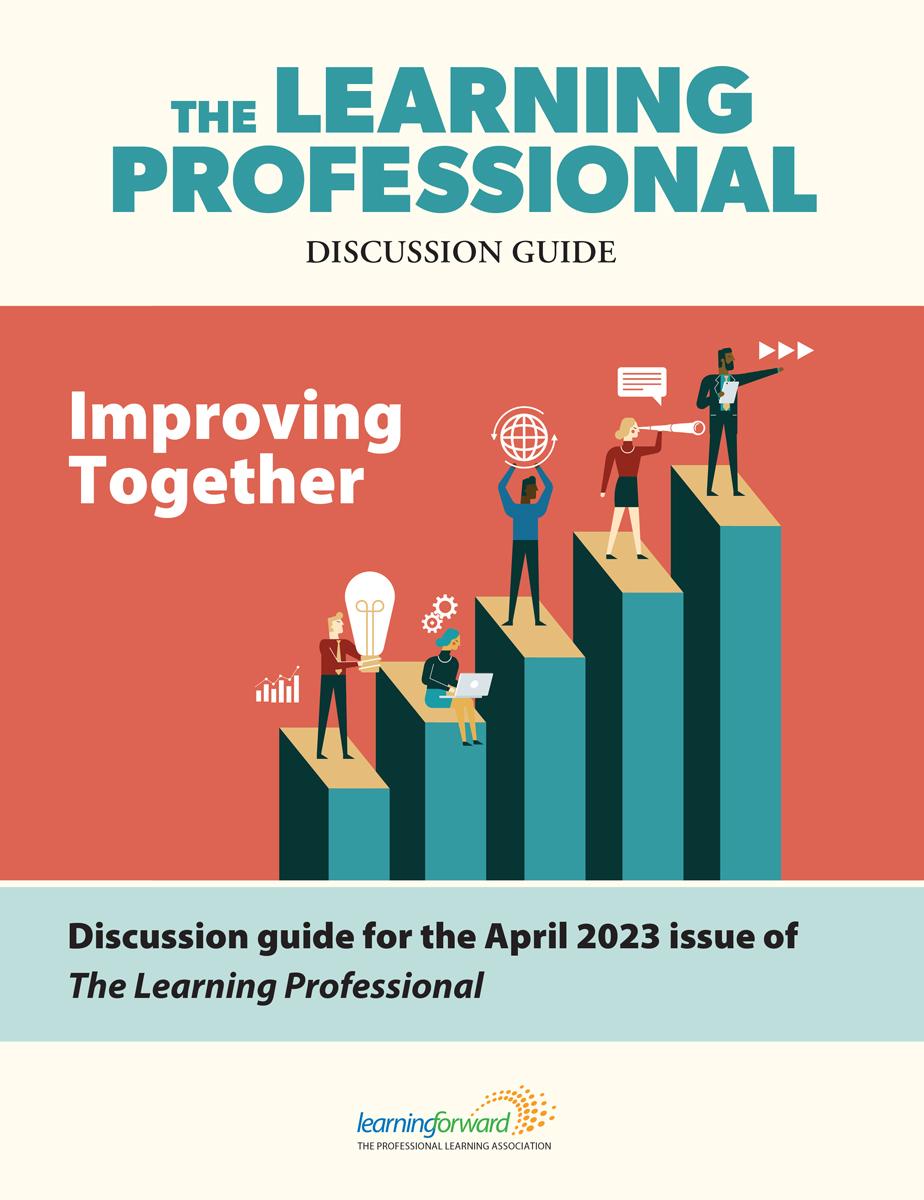
Discussion Guide
This guide will help you and your teams take a deep dive into the April 2023 issue of The Learning Professional on the theme of Improving Together. It examines how educators can collaboratively engage in continuous improvement approaches that shift educator practices to help students thrive.
In This Issue
FOCUS
Learning together is the best way forward
As the educators featured in this issue show, a commitment to shared learning benefits everyone.
Networks forge a path to school improvement
Educator networks supported by the Bill & Melinda Gates Foundation apply continuous improvement methods, and their learning offers lessons for all.
Teacher voice drives improvement in Baltimore
A literacy network that elevates teachers’ expertise and voices is making tangible differences in students’ learning.
Coaching empowers teachers to lead for equity
Coaches in New York City middle schools build teachers’ leadership capacity to strengthen support and outcomes for historically marginalized students.
Good ideas spread when schools learn from each other
When educator teams participate in “live cases,” they learn about what’s working in one another’s schools.
Thinking routines help educators develop an equity lens
Five thinking routines foster a habit of equity-mindedness in teaching and coaching.
Coaches support literacy across subject areas
Coaching to promote common literacy practices across content areas improves outcomes for middle schoolers in Long Beach, California.
Teacher leaders make change ideas stick
Cultivating veteran teachers as leaders and mentors for newer teachers is a key strategy for making change doable and sustainable in Dallas.
The Model for Improvement
How one Chicago teacher is using the Model for Improvement to foster more engaged and supportive relationships.
A common aim unites a diverse community: ONLINE EXCLUSIVE
When a group of schools honed their network’s focus, trust, peer collaboration, and student outcomes improved.
6 principles to foster voice and belonging: ONLINE EXCLUSIVE
When educators feel appreciated and empowered, they are more likely to cultivate those feelings in students.
Math teachers test responsive practices in real time: ONLINE EXCLUSIVE
Three secondary school educators share how improvement methods are helping them bring greater equity to math classes.
TOOLS
Student voice data accelerates teaching and learning
Reflection prompts and planning exercises help school and district leaders use student voice data for improvement.
Resources for improvement work
A compendium of free, online resources that cover crucial elements of improvement work, including leadership, equity, and measurement.
Through the lens
How to implement Standards for Professional Learning to foster continuous improvement.
IDEAS
Practical measures make data timely and useful
A visual illustration of how a group of educators learned what works, what doesn’t, and why.
When we listen to students, we improve our schools
Students are a vital yet often overlooked source of professional learning for educators at all levels.
Educators learned to use student data. Graduation rates improved
Easy access to useful data and opportunities to learn how to use it made the difference for educators and students in New York City.
Experiential learning improves teams’ inquiry cycles: ONLINE EXCLUSIVE
The New Tech Network modeled an improvement cycle to build educators’ capacity to do their own cycles.
VOICES





UPDATES
Recent Issues
GLOBAL PERSPECTIVES
June 2024
What does professional learning look like around the world? This issue explores what educators can learn from each other across geographic borders.
WHERE TECHNOLOGY CAN TAKE US
April 2024
Technology is both a topic and a tool for professional learning. This issue examines benefits, challenges, and what learning leaders need to know.
EVALUATING PROFESSIONAL LEARNING
February 2024
How do you know your professional learning is working? This issue digs into evaluation purposes, methods, tools, and results.
TAKING THE NEXT STEP
December 2023
Professional learning can open up new roles and challenges and help educators thrive in them. This issue shows how that benefits staff and students alike.



